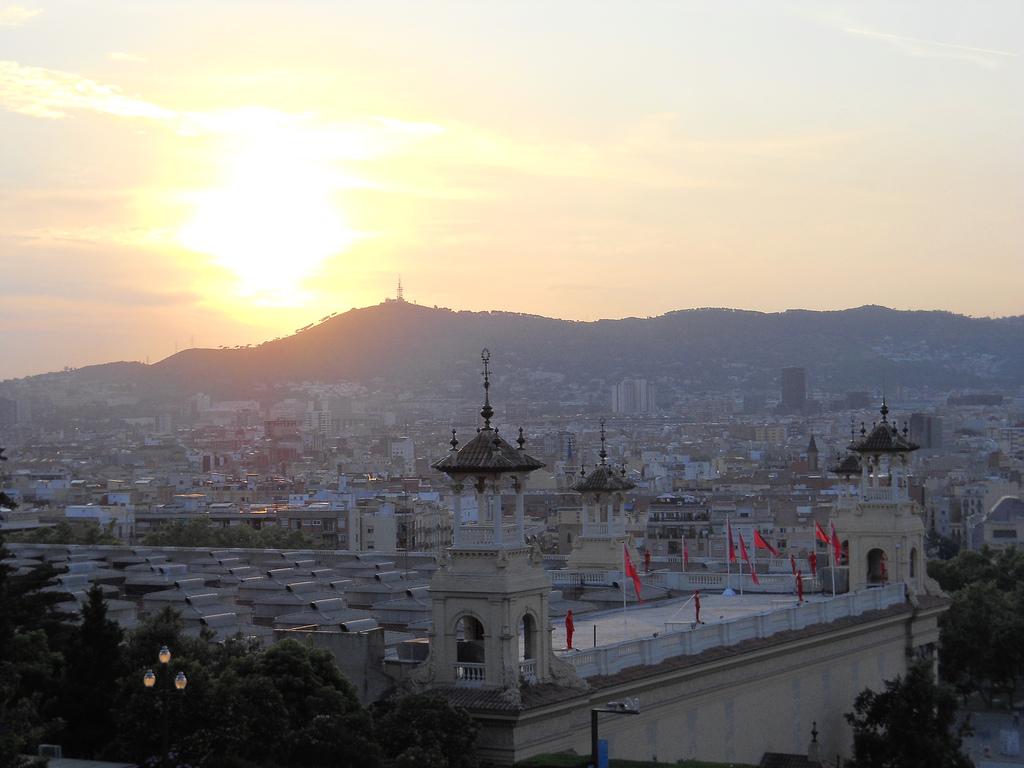Last Spring, stuck in the drudgery of finals and eager to get out of town, my friend Emma and I began planning the perfect end of semester celebration – a trip to Europe. It was to be the classic backpacking experience – young people adventuring across the popular and romantic continent – only we were doing it on a shoestring budget.
We bought plane tickets and a multi-country train pass, and that’s all.
We were to stay in Emma’s family’s apartment in Cascais, Portugal, and then travel by train on to Spain, France, Monaco and Italy, stopping in 12 cities over the course of about five weeks. Being too afraid of locking ourselves into specific plans, we threw caution to the wind and booked hostiles for only the first few days of our trip.
The half-planned, half-spontaneous nature of our adventure was equal parts exciting and frightening. We were not sure if our lack of organization and structure would leave us feeling brave or simply foolish.
Luckily, we made it all the way to Rome, Italy in five weeks, as we had hoped, and managed to squeeze in an extra country (Slovenia!) to our list as well. It was thrilling to stand in cities that are thousands of years old and see in person what I had studied in school.
Of course, there were minor struggles every day, but those made the small triumphs even sweeter.
Over the course of our European adventure we picked up many tips and tricks of daily living that are unique to the lifestyle of a poor, nomadic backpacker that may be helpful to others who have the lucky opportunity to live as such.
Pack less than you would ever expect to need. Pack what seems light, and then take out more. Emma and I stuffed everything we would need into one school-sized backpack apiece, and it was plenty for our five-week journey. One pair of thin sandals will get you across seven countries, even if you walk approximately 10 miles a day, and your clothing will survive with Woolite and water every few days.
Master the public transportation system. It is scary, at first, to attempt to map out your route in a foreign language and unfamiliar settings, but it’s not difficult to get accustomed to and it saves loads of money. We successfully used it in 10 cities without too much frustration. Just be sure to learn at least enough of the native language to say, “I’m sorry, I only speak English” because people often ask you for directions when you appear to be such an accomplished and confidant public transportation user.
Make sure your hostel is in a convenient location. Places that are out of the way will make up their lowered cost in transportation fare.
Avail yourself of local grocery stores. Shopping for your meals in grocery stores will allow you to occasionally splurge on amazing local cuisine. Gelato and ice cream are ubiquitous in most European countries, of which I highly approve.
Getting lost can work in your favor. We stumbled upon lovely places – parks, beautiful streets and the best croissants of our lives – when we threw away our map.
There is a certain beauty in the simple living I experienced on my journey. Submitting to a tight budget, carrying few belongings and being willing to wander forced us to be out in the world and among all those who live and travel in the cities we visited.
There were no private hotel rooms in which to retreat, so we loitered in doorsteps and mingled with any friendly people we came across. We met people whom we never would have met if we had traveled in a different, perhaps more luxurious, way.
Countless college students pass through the same cities and see the same sights we did, but they didn’t share the same experience with the Moroccan taxi driver who quizzed us about Joan Baez, or our Italian friends who delighted us first with their love of American rock music and resemblance to Kurt Cobain, and then with their thorough tour of the Rome’s most grand sights.
Contact Annie Sciacca at asciacca@theinquireronline.com





































































